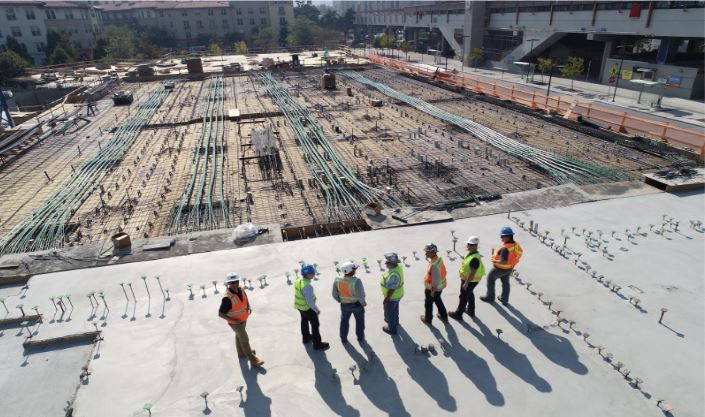In December 2023, the Australian Bureau of Statistics recorded 1.0 million independent contractors in Australia, making up 7.5% of the country’s working population. The statistics reveal the sheer number of people who have deviated from conventional employer-employee work rights and benefits, including coverage by state-supported workers compensation schemes.
A very common question we get asked is “am I covered for workers compensation if I’m working under my own ABN or if I am a subcontractor”. The short answer is it depends. Each claim is determined on its own facts.
This article aims to guide workers in identifying their worker status and provide an outline of the compensation insurance rights and responsibilities that attach to each kind of worker. In particular, it will cover:
- Whether contractors are covered by Workers Compensation;
- When contractors need their own Workers Compensation Insurance;
- Whether Sole Traders are covered by Workers Compensation;
- Insurance alternatives for Sole traders;
- How Workers Compensation Insurance Premiums are calculated; and
- How to use SIRA’s WorkStatus Tool.
What is Workers Compensation in NSW?
In NSW, workers’ compensation is an insurance system that aims to provide financial and medical benefits to employees when they suffer injuries or illnesses as a result of their work or work environment. As an injured worker, workers compensation enables you to submit a claim for coverage and benefits that support you in your recovery, help you return to work, and receive a payout for permanent injury.
Who is eligible for Workers Compensation?
In NSW, workers’ compensation legislation and guidelines describe the kinds of workers who can claim compensation for an injury or illness. For a detailed look at the NSW workers compensation scheme and relevant legislation make sure you read our Complete Guide to Workers’ Compensation NSW.
All employees, including full-time, part-time, and casual workers, qualify for workers compensation benefits. This category of employees also includes apprentices, trainees, and domestic workers, i.e. anyone who has “entered into or works under a contract of service or a training contract with an employer” (See Section 4 of the Workplace Injury Management and Workers Compensation Act).
Whether coverage for work-related injury or illness is available for all other types of workers — e.g. Contractors, Subcontractors, Volunteers, Sole Traders, Independent Contractors, amongst others — will depend on whether their work and business arrangements resemble the traits of an employee working for an employer, in which case they’ll be known as a “deemed worker

Are Contractors and Subcontractors covered by workers compensation?
Whether contractors and subcontractors are covered by workers’ compensation largely depends on their employment status and the specific terms of their contracts. Generally, contractors, being independent, are not entitled to workers’ compensation. However, in certain situations where contractors and subcontractors are classified as “deemed workers,” for the purposes of workers’ compensation insurance.
When do contractors need their own Workers Compensation Insurance?
If you are a contractor who is not covered by the NSW workers compensation scheme, then you should consider obtaining alternative or private workers compensation insurance. Workers compensation can still provide significant coverage for potential losses of income and medical expenses if you or one of your workers experiences an illness or injury as a result of work.
Some factors you should consider when deciding whether to obtain separate workers compensation insurance include:
- Whether there is a high risk of injury or risk of serious injury in the work you perform;
- Whether you run an unincorporated business*; and
- Whether you work in a single-person business structure, i.e. you are self-employed or a sole trader and therefore are unlikely to ever qualify for NSW workers compensation;
- Whether you are likely to hire workers or sub-contractors; and
- Whether client contracts will require you to already have a form of workers compensation insurance.
*Note that whether your business is incorporated or unincorporated can become an especially important factor in determining whether to choose an alternative form of workers compensation. If your business is unincorporated, any illness or injury caused by or occuring in the course of work could lead to serious financial losses that flow onto your personal finances.
In choosing a compensation policy as a contractor, it is therefore also important to understand whether you are likely to provide services or work as a “deemed worker” so that you are nonetheless covered by NSW workers compensation. The sections below cover the differences between contractors, workers, and “deemed workers” in more detail.
What is the key difference between a Contractor & Worker
Although no single factor is decisive in distinguishing a self-employed contractor (self-employed individuals who work for hirers) from a worker or an employee, there are some key traits of each that tend to separate them for the purposes of NSW workers’ compensation schemes:
| Contractor | Worker / Employee |
| Completes work according to independent skills and judgments | Generally directed in the manner of their work, including judgements about quality and skills |
| Inhabits the role of an employer of other workers, e.g. delegates work to others | Generally directed in the nature of their work, including work hours |
| Provides quotes for work and is paid according to them | Paid according to usually regular hours of work |
| Supplies materials and equipment for jobs independently | Uses materials and equipment provided by an employer |
| Works under a separate business or firm name and ABN | Works for a single employer entity and receives remuneration under PAYG tax arrangements |
In contrast to workers or employees, self-employed contractors are generally not eligible for NSW workers’ compensation. Contractors should therefore seek alternative sources of insurance to remain covered in instances of suffering work-related illnesses or injuries, unless there is substantial evidence that you are a deemed worker.
When is a contractor considered a “deemed worker” for Workers Comp?
While contractors are generally not covered by NSW workers compensation, there are several circumstances and contractor jobs that allow a contractor to become a “deemed worker” and receive the benefit of employee compensation coverage. Schedule 1 of the Workplace Injury Management and Workers Compensation Act 1988 (NSW) contains all the categories of work and roles of deemed workers. The schedule in summary includes the following:
- Workers subject to hiring arrangements, e.g. outworkers, lent or on hire workers
- Contractors economically dependent on a principal contractor, or working under a labour hire agency
- Salespersons, canvassers, collectors (workers paid wholly or partly by commission)
- Mine employees and rescue personnel (anyone providing work with remuneration from employees of the mine)
- Some owners of businesses
- Rural Workers, e.g. supplying timber, clearing land stumps and logs
- Owner-drivers of hire-vehicles or hire-vessels, e.g. owners of vehicles which the owner drives to transport goods
Case study: Successful Workers Compensation Claim for Subcontractor
Recently, we settled a case involving a deemed worker dispute. Our client was working as a labourer using his own ABN when he was injured. Initially, his claim was completely denied by the insurer on the basis that he was paid through an ABN, he wasn’t paid superannuation and he had been issuing invoices to the employer – common attributes of a subcontractor.
Our client’s injuries were severe. He was not entitled to weekly benefits or medical treatment to help improve his condition. Our client was under immense stress not only from his injuries that were left untreated but also from the financial burden of not being able to work and not being entitled to any weekly payments.
The team at Alliance Compensation and Litigation Lawyers were able to help this client achieve the utmost favourable outcome. While our client had to wait a long and difficult six months, the outcome was that the insurer accepted liability for our client’s accident. Our client was reimbursed for medical expenses and ambulance bills. He was reimbursed for the six months he lost from not being able to work and he continues to receive weeklies and medical treatment benefits.
We were able to prove that our client was a “deemed worker” because of the following factors:
- Our client worked exclusively for the company where he was injured;
- Our client was paid consistently the same amount on a weekly basis regardless of whether it was paid through his ABN;
- Our client wore the uniform supplied by the employer;
- Our client signed in and out of work each day using a sign-in system and he had a “worker ID”;
- Our client worked with the employer for 12 months before he was injured;
- Our client used the tools from the employer and not his own; and
- Our client used the employer’s vehicle to get to and from work each day.
Utilising SIRA’s WorkerStatus Tool
If you require further assistance with identifying what worker category your worker fits, you can use SIRA’s Worker or Contractor Tool as a guide.
The tool takes you through a series of questions about the nature of the work a hire performs and their business and work relationship with you to determine if they are in fact a worker, deemed worker, or contractor for the purposes of workers compensation in NSW.

Are sole traders covered by Workers Compensation?
In NSW, sole traders are generally not entitled to workers compensation. They are not considered an employee because they own a business and are completely responsible for the business’s operation, liabilities, and profits. Independent contractors, i.e. contractors who individually operate a business, are also considered sole traders.
Whether a sole trader is entitled to workers compensation however, depends on the circumstances of the sole trader’s work. Sole traders can still meet the criteria of a “deemed worker” because of their business relationship with a hirer, or the financially dependent nature of the work they perform that is similar to the relationship of an employee to an employer.
If you are unsure whether you are considered a sole trader, it may be helpful to use the following criteria as a guide:
- You are the sole owner of the business
- You are completely responsible for decisions made about the company
- You are completely responsible for day-to-day operations and decision-making
- You are personally liable for the profits and losses of your business
- You generally work with clients on a project-by-project basis for a specific duration
- You are paid according to quotes you provide to your client
- You provide materials and equipment for your work
What are Workers Compensation Alternatives for Sole Traders?
A range of alternative insurance options are available to sole traders depending on their industry and workplace risks. These include:
- Public Liability Insurance — coverage for the costs of injuries and accidents that occur due to the sole trader’s business activities
- Income Protection Insurance — coverage for business revenue losses as a result of the sole trader becoming ill and unable to work
- Business Interruption Insurance — coverage for losses when a sole trader is unable to operate their business as a result of
- Personal Accident and Illness Insurance — coverage for loss of income and costs of medical care if a sole trader becomes ill or injured.
- Total & Permanent Disability TPD Insurance — coverage that provides financial benefits to insured individuals who become totally and permanently disabled and are therefore unable to work
Although it is not mandatory for sole traders to have the above insurances, they can become essential to ensuring the efficacy of the trader’s business. It is heavily recommended, for instance, that sole traders obtain Personal Income Insurance to ensure that they can cover the costs of medical bills and property damage that their work might cause.

Do sole traders need to provide their workers with Workers Compensation Insurance?
Sole traders in NSW are required by law to obtain workers compensation insurance for any workers they hire, including both employees and contractors who are deemed workers and if they are paid more than $7,500/year. This rule applies regardless of the industry of the contractor.
The mandatory rule ensures that sole traders are able to cover the costs of any injuries, medical expenses, and loss of income employees and contractors experience over the course of working for the sole trader.
How are Workers Compensation Insurance premiums calculated?
When taking out workers compensation insurance as an sole trader employer/principal contract, you will need to provide the insurer with a range of information about your business so that the insurer can calculate the price of the premiums you will pay.
Such information includes but is not limited to:
- Your industry and its associated risks;
- The total value of wages paid to employees;
- The business’s claims and accidents history;
- The degree of the business’s compliance with safety standards; and
- The size of the business.
The total value of wages paid to your employees will usually play a significant part in the insurer’s calculation of employer workers compensation premiums — the higher the total value, the higher the premiums. After taking out workers compensation insurance, you will usually also need to report your complete payroll to your insurer annually.
Speak to our expert Workers Compensation Lawyers today
Determining workers compensation liability for contractors and sole traders can be a particularly complex matter that requires interpretation of legislation and cases. It can therefore be crucial to seek expert legal advice when determining what your worker status in fact is.
If you would like assistance with determining your work status and ascertaining your insurance entitlements and responsibilities, we invite you to book a no obligation consultation with us.
You can also call us on 02 8764 1776 or email us at refer@alliancecomplayers.com.au.


















